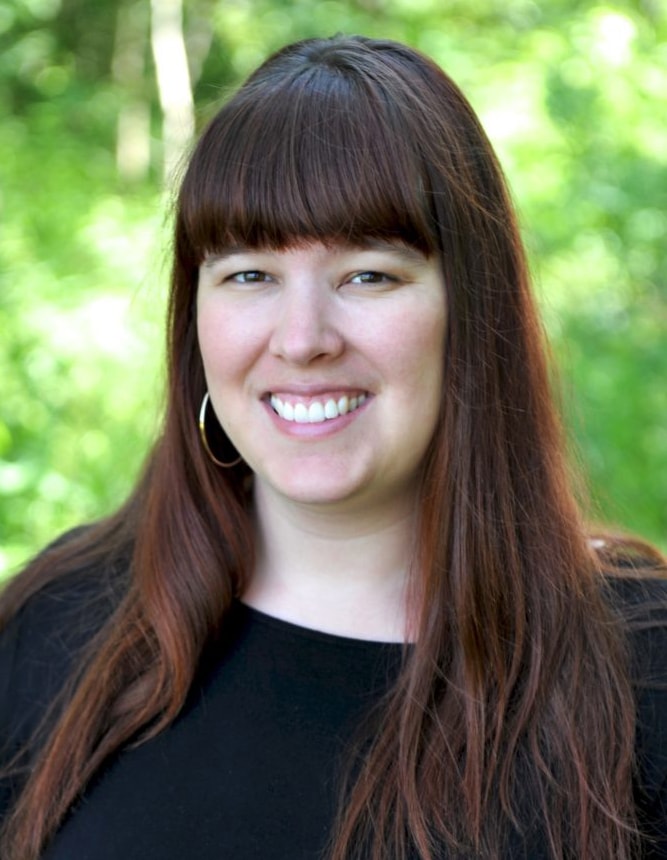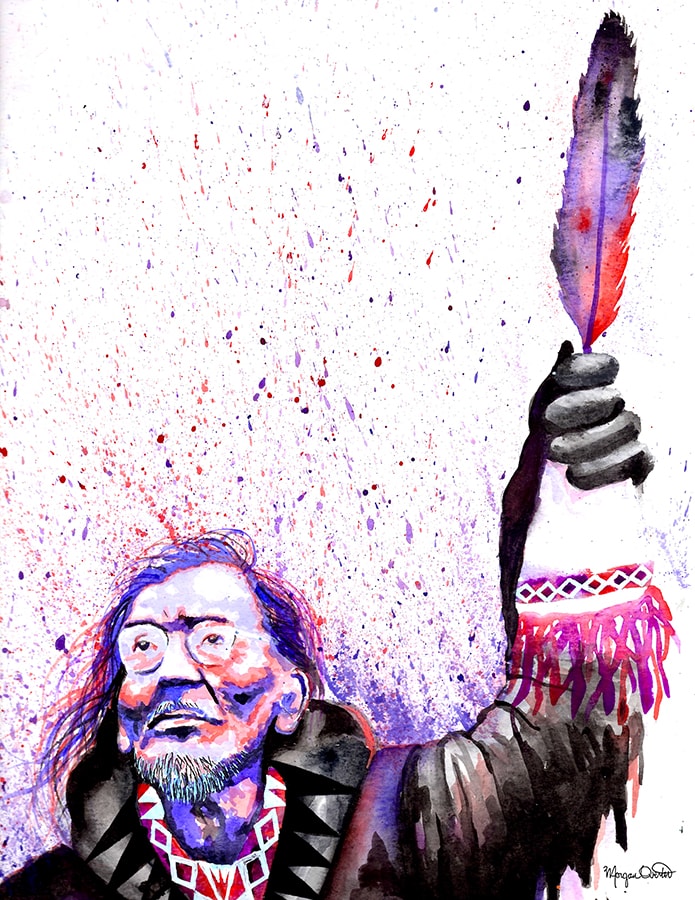Musicologist Celebrates Indigenous Stories Through Sights and Sounds
By Haley Nordeen
Media Inquiries- School of Music
- College of Fine Arts
- 412-268-1047
Carnegie Mellon University Assistant Professor of Musicology Alexa Woloshyn is at the beginning of a three-year project looking to understand the history and future of indigenous peoples in the Pittsburgh region.
Her interdisciplinary project, "Decolonized Futures," integrates Indigenous futurist storytelling with decolonization and analyzes settler colonialist narratives. Through various media it also creates interdisciplinary narratives to envision potential decolonized futures. The project is centered in Pittsburgh, which has historically included the Haudenosaunee, Shawnee, Lenape, and Mingo nations.
Woloshyn said she is eager to explore these themes with the broader CMU community.
"I spend all of my time thinking about these things, but I would love to be talking about these things with colleagues and students," she said.
"Decolonized Futures" was chosen for the Narrative Initiative by CMU's Center for Arts and Society. The initiative centers on the idea that all aspects of human expression and production are embedded with stories, and that the narrative arch has become a frame for understanding nearly everything about contemporary life.

Alexa Woloshyn
In her research and teaching, Woloshyn focuses on indigenous worldviews and cosmologies, such as in her CMU classes "North American Indigenous Music," "Contemporary Soundscapes," and "World Music."
"Play what you want to play, love what you want to love, but we all need to be much more aware of why we think what we think, why we think this is good music, and why we know these stories and not others," Woloshyn said.
Originally from Saskatchewan, Canada (Treaty 6 territory and the homeland of the Métis), Woloshyn joined Carnegie Mellon's School of Music faculty in 2016. Her research focuses on how electronic, physiological and sociocultural technologies mediate the creation and consumption of musical practices in art and popular musics.
She examines Indigenous musicians' use of mediating technologies to construct and question notions of 'modern' Indigeneity, with artists such as Tanya Tagaq and A Tribe Called Red.
Last year, students in her "North American Indigenous Music" seminar enjoyed a videochat with Chickasaw composer Jerod Impichchaachaaha' Tate so much, that it spurred the first event of "Decolonized Futures:" inviting Tate to CMU last November.
As part of his visit, the Carnegie Mellon Contemporary Ensemble performed Tate's composition, "Shakamaxon," which is named for the historic Lenape village that bordered Philadelphia. Tate described the piece as an imaginary encounter between the past and the present - the Lenape who lived in Shakamaxon and himself.
On March 2, a second event took place: "Sharing our Stories" included members of the Council of Three Rivers American Indian Center, Pitt social work student and artist Morgan Overton, and a member of the East Coast Two Spirit Society, each one representing diverse perspectives as Cherokee, Tuscarora, Shinnecock, Mohawk and Seminole people. The gathering brought together nearly 50 people to the College of Fine Arts, where the panelists discussed community-building in Pittsburgh and elsewhere, as well as the importance of sharing through artistic practices such as beading, sewing, cooking, dancing, singing, and painting.
"It should feel natural that these musicians or knowledge keepers come to CMU, and they should feel welcome here," said Woloshyn, who is working to establish a stronger relationship between the university and the regional indigenous community.
Upcoming events in Woloshyn's project include a symposium this fall on settler colonialism, one the following year on decolonization, and many more visiting musicians and artists.
Students in her "Contemporary Soundscapes" class also will work on the project, developing a set of site-specific compositions. She plans to facilitate a soundwalk, a listening-focused journey through the city where at each stop a student composition connects people with indigenous histories of the place through sound.
To celebrate the project's conclusion in 2021, Woloshyn plans to commission a composer from a nation with a historical tie to the region - to be performed by School of Music students.
